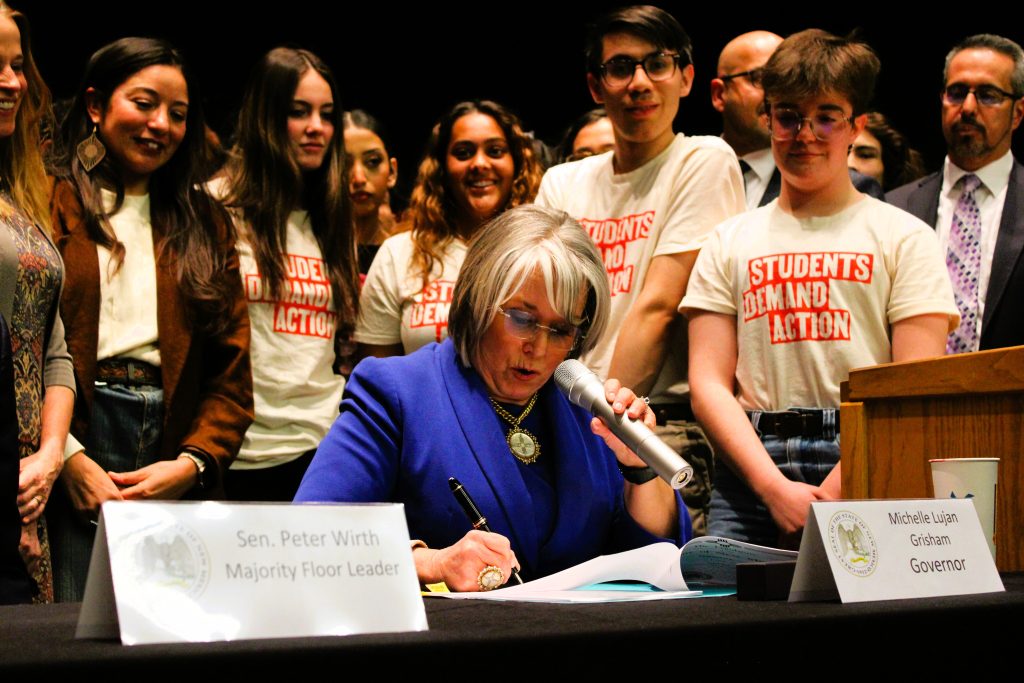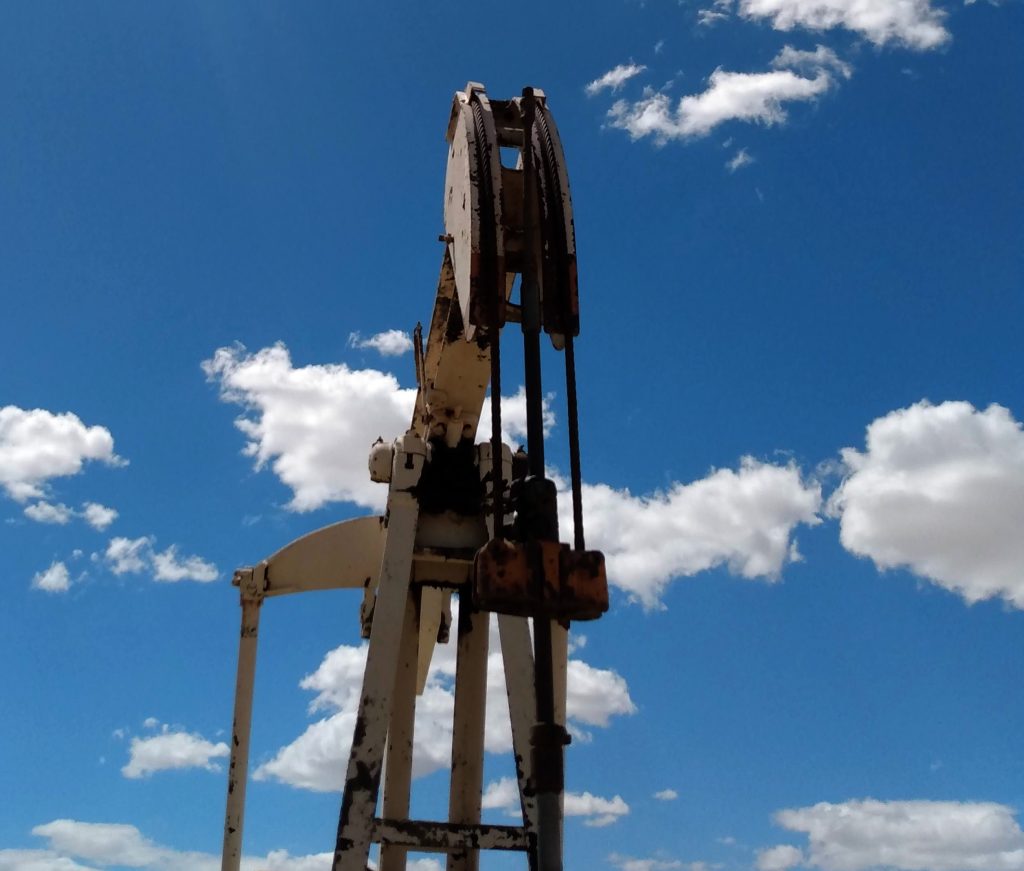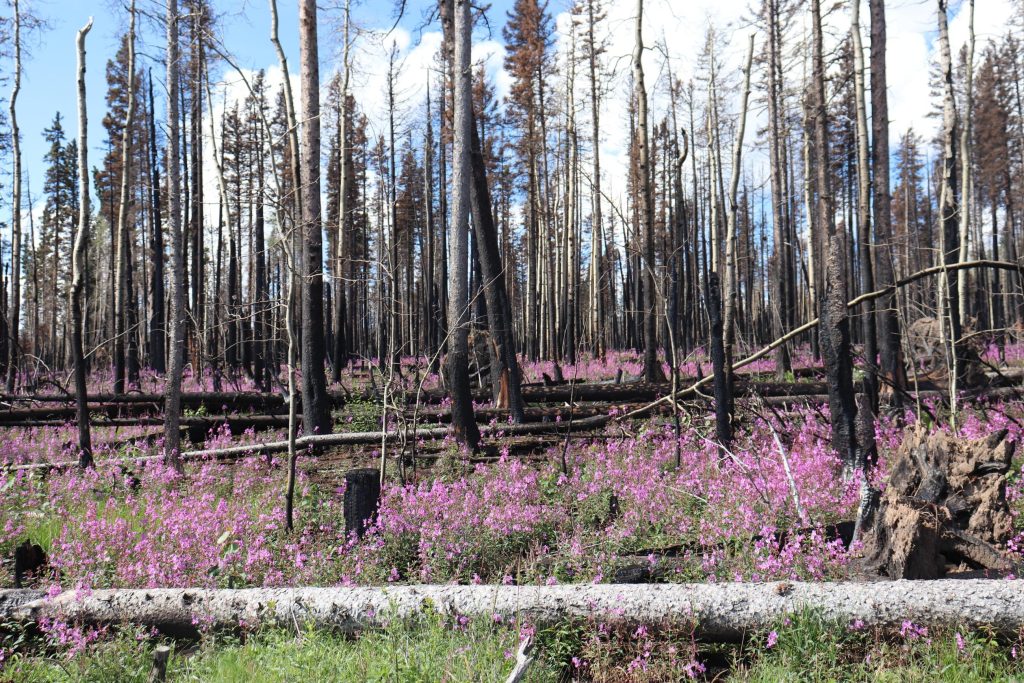When the transition away from fossil fuels occurs, U.S. Rep. Teresa Leger Fernández told NM Political Report it is important not to “leave the communities that powered America’s growth behind.”
Leger Fernández, a New Mexico Democrat, introduced a bill, known as the Just Transition for Energy Communities Act, last week that would provide $4.5 billion in grants for states through 2031 and $500 million for tribes to implement plans for economic development. These grants will only be available to states and tribes that receive federal mineral revenue.
Leger Fernández said she hopes the funding will be enough to begin the process of diversification. The grants, she explained, could provide “that extra investment sometimes it takes to get businesses going.”
When states and tribes apply for the grant funding, Leger Fernández said the expectation will be that the projects occur in the communities that will be impacted by the loss of fossil fuel extraction and will be most impacted by the transition. Projects that support fossil fuel development would not be eligible, nor would communities be able to use the funds for lobbying.
The funds will be available through 2031 and Leger Fernández said the states and tribes will not be limited to a single application for funding.
Leger Fernández said there has been a great demand for renewable energy, electric vehicles and modernizing the electric grid.
“While that is playing out, we want to make sure that we are prepared in New Mexico, that we are prepared in those communities that have relied on fossil fuels for a lot of their revenues, for a lot of their employment and jobs,” she said. “So that’s what we’re getting ready for. We’re forward looking and saying we need to be prepared for this transition and to do that, we need to invest in diversifying our economy, diversifying our businesses so that they are not so tied to fossil fuel production but are tied to whatever our future businesses need to be.”
She said that could be in the renewable energy sector,technology, manufacturing, outdoor recreation or arts and entertainment.
“There’s lots of ways that we can diversify our economy,” she said. “And so we’re going to lead that up to the ingenuity of the local communities and the entrepreneurs.”
Leger Fernández is co-sponsoring the bill with U.S. Rep. Suzanne Bonamici, a Democrat from Oregon, and is optimistic that they will receive support from members of Congress on both sides of the aisle.
“Our nation’s important transition to clean energy will create significant economic growth,” Bonamici said in a press release. “For that transition to be just, we must not leave out or leave behind states and Tribes with longstanding economic ties to fossil fuel industries.”
She further said that the economic development grants will “empower communities to navigate the clean energy transformation of our economy and participate in the jobs it will bring.”
In May, Leger Fernández met with New Mexico leaders and energy experts to gather input for the bill and, in March, she sent a letter to President Joe Biden urging him to look for ways to help states that rely on fossil fuels. In the letter, she highlighted that New Mexico relies on fossil fuel severance tax for 30 percent of the state budget. In addition to that, 90 percent of the funding for schools comes from revenue related to the fossil fuel industries.
Leger Fernández said economic diversification is needed to help education in the state.
“I am determined to work on these issues because I know in New Mexico how important the oil and gas revenue is for our kids as well,” she said. “And that we rely on it for our education funding. I will do everything I can to help protect the education funding because those children are our future.”
The legislation is endorsed by groups like New Mexico Voices for Children.
“This bill is about ensuring a better future for kids,” James Jimenez, the executive director of the nonprofit, said in a press release. “For years, New Mexico has relied on oil and gas to fund our children’s education programming. But as we battle climate change and protect our land and public health, it’s vital that states like New Mexico are able to diversify their economies.”
The transition away from fossil fuels is driven in part by the climate emergency that the world is facing, which was documented in an Intergovernmental Panel on Climate Change report released this summer that warned of catastrophic climate events.
“We are called to act now,” Leger Fernández said.
Leger Fernández said natural disasters like hurricanes, wildfires and drought that are becoming more common and more severe due to climate change will be more costly for human health and that climate change must be addressed.
In a press release, Gov. Michelle Lujan Grisham called the Just Transition for Energy Communities Act “an important step toward protecting state revenues as we continue the critical work of diversifying and expanding New Mexico’s economy.”























